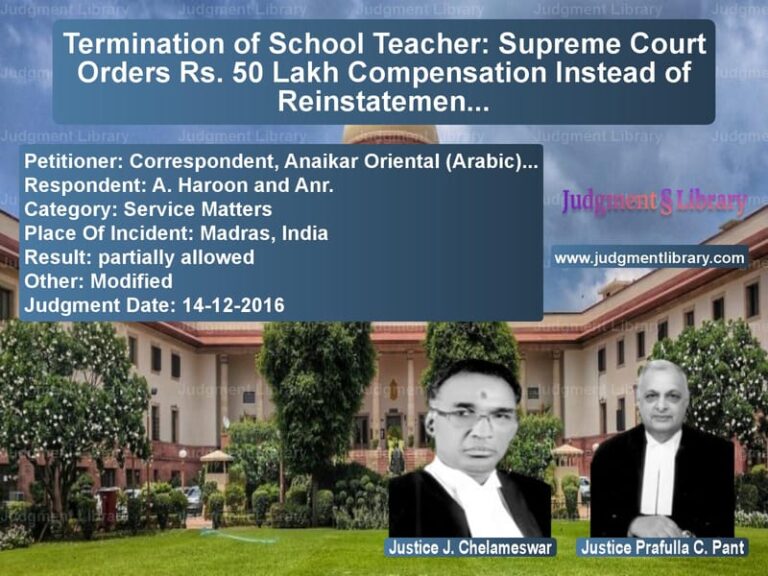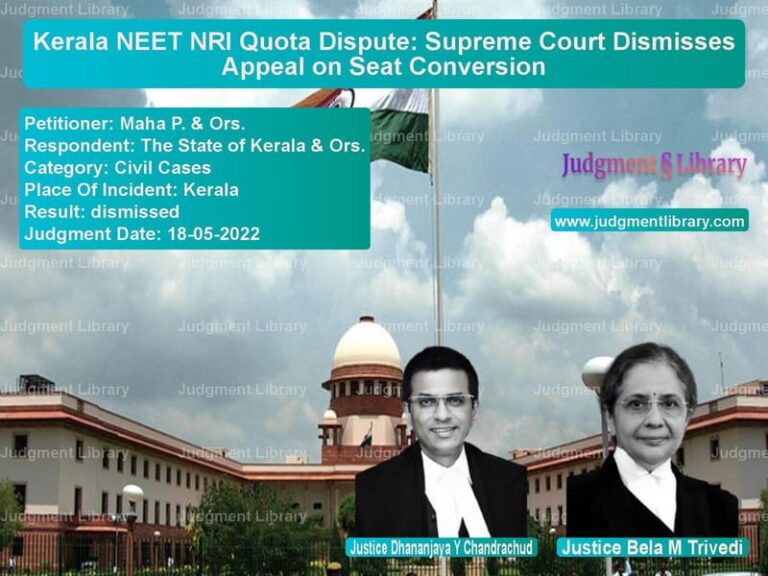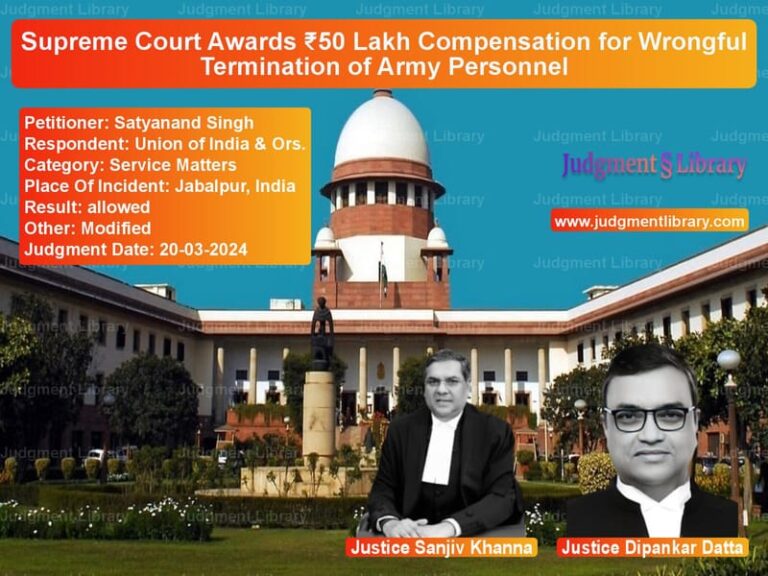Parsi Funeral Rites During COVID-19: Supreme Court Approves Agreed Protocol
The case of The Surat Parsi Panchayat Board vs. Union of India revolved around the right of the Parsi Zoroastrian community to perform their traditional funeral rites, known as Dokhmenashini, during the COVID-19 pandemic. The Supreme Court facilitated a resolution between the community and the government, allowing the ritual while ensuring public health safety.
Background of the Case
The Surat Parsi Panchayat Board filed a writ petition under Article 226 of the Constitution before the Gujarat High Court, seeking permission to conduct funeral rites as per the Zoroastrian faith. Their primary concern was that the protocols issued by the Union Government on March 15, 2020, for the disposal of bodies during the pandemic contradicted their religious beliefs.
The High Court dismissed the petition, leading the appellants to approach the Supreme Court. The petitioners contended that:
- The disposal of bodies through Dokhmenashini is an essential religious practice.
- The COVID-19 guidelines issued by the government did not account for the religious concerns of the Parsi community.
- An alternative protocol could be devised to balance both religious rights and public health concerns.
Arguments of the Petitioners
Senior Counsel Fali S. Nariman, representing the appellants, submitted that the guidelines on handling COVID-19 victims did not consider the faith-based practices of the Zoroastrian community. He proposed a modified protocol that would:
- Ensure safe disposal of bodies within the Tower of Silence.
- Minimize the risk of virus transmission.
- Allow community members to perform final rites in a safe and restricted environment.
Respondents’ Arguments
The Union Government, represented by Solicitor General Tushar Mehta, argued that:
- The COVID-19 guidelines were framed to prevent the spread of infection.
- Public health concerns must be given precedence during a pandemic.
- Any religious exemptions must conform to safety norms.
Supreme Court’s Analysis and Resolution
The Supreme Court recognized the importance of both religious rights under Article 25 of the Constitution and the need for public health safety. It facilitated discussions between the parties, leading to a mutually agreeable solution.
The agreed protocol included the following key points:
- Only designated funeral workers (Nassasalars) would handle the deceased.
- Strict social distancing measures would be maintained.
- The deceased’s body would remain in a sealed body bag, with only the face exposed for final prayers.
- A dedicated section within the Dokhma (Tower of Silence) would be reserved exclusively for COVID-19 victims.
- Protective barriers would be installed to prevent contact between corpses and scavenger birds.
Supreme Court’s Verdict
The Supreme Court set aside the Gujarat High Court’s decision and approved the new protocol, stating:
“The protocol and the Standard Operating Procedure comports with the tenets of the Zoroastrian faith while according with the need expressed by the Union government for the maintenance of safety and hygiene in the context of the COVID-19 pandemic.”
The Court praised both parties for reaching a practical resolution that respected religious beliefs while ensuring public safety.
Significance of the Judgment
This ruling is significant because:
- It upholds the right to religious practices while balancing public health concerns.
- It establishes a framework for resolving similar disputes through constructive dialogue.
- It reaffirms that the judiciary can mediate between fundamental rights and societal needs without favoring one over the other.
Conclusion
The Supreme Court’s decision in this case showcases how constitutional rights can be harmonized with public health concerns. By approving an alternative protocol, the Court ensured that the Parsi Zoroastrian community could continue their sacred funeral rites while complying with necessary health guidelines. This judgment sets an important precedent for future cases involving religious freedoms and state-imposed restrictions during emergencies.
Petitioner Name: The Surat Parsi Panchayat Board and Another.Respondent Name: Union of India and Others.Judgment By: Justice Dhananjaya Y Chandrachud, Justice Surya Kant.Place Of Incident: Gujarat.Judgment Date: 04-02-2022.
Don’t miss out on the full details! Download the complete judgment in PDF format below and gain valuable insights instantly!
Download Judgment: the-surat-parsi-panc-vs-union-of-india-and-o-supreme-court-of-india-judgment-dated-04-02-2022.pdf
Directly Download Judgment: Directly download this Judgment
See all petitions in Fundamental Rights
See all petitions in Constitution Interpretation
See all petitions in Public Interest Litigation
See all petitions in Judgment by Dhananjaya Y Chandrachud
See all petitions in Judgment by Surya Kant
See all petitions in allowed
See all petitions in settled
See all petitions in supreme court of India judgments February 2022
See all petitions in 2022 judgments
See all posts in Constitutional Cases Category
See all allowed petitions in Constitutional Cases Category
See all Dismissed petitions in Constitutional Cases Category
See all partially allowed petitions in Constitutional Cases Category







